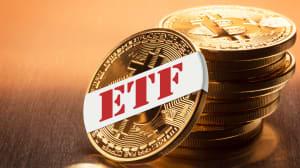By Ed Frankl
German inflation fell slightly in August, with the key core rate holding steady, confirming prior estimates at a rate the European Central Bank could consider too high to ignore when deciding whether to raise rates next week.
Consumer prices were 6.1% higher in August than the same month a year earlier, compared with 6.2% in July, measured by national standards, data from the German statistics office Destatis showed Friday.
The reading matched preliminary estimates published by Destatis at the end of August and a consensus of economists polled by The Wall Street Journal.
"The inflation rate therefore remains at a high level. The increases in energy and food prices exceed overall inflation and keep the inflation rate high," Ruth Brand, president of Destatis, said.
With inflation on an EU-harmonized basis at 6.4% in August, the rate remains well above the European Central Bank's 2% target, and the Frankfurt-based institution could still be in a position to raise its key rate next week from the current 3.75%.
Doves--who generally favor lower interest rates--on the decision-making committee may counter that surveys and industrial data signal a slowing of the economy in the face of slowing demand and the squeeze on spending caused by higher rates.
In data published this week, German industrial production in July slumped by 0.8% on month, after new factory orders dived 11.7%, while economic research group IfW Kiel Institute for the World Economy said Germany's economy would contract more than previously expected in 2023, by 0.5%.
The elevated inflation reading for August was driven by energy-price inflation, which rebounded to 8.3% in August from 5.7% in July, caused in part by base effects related to government assistance for energy bills last year, Destatis said. Electricity prices, in particular, accelerated.
Food inflation, which has been a key driver of higher consumer prices recently, cooled, however, to 9.0% in August from 11.0% in the prior month.
But core inflation, a measure of underlying inflation that excludes volatile food and energy prices, and of key interest to ECB policy makers, remained at 5.5% in August, the same as July.
A base effect from last year's nine-euro rail discount program also propped up services inflation in August, but that effect will cease to apply from September onward, Brand said.
The elapsing of the base effect should drive the core rate downward in September, suggesting that the window for further monetary policy tightening will close after Thursday's ECB meeting, whatever the central bank decides, according to Claus Vistesen, chief eurozone economist at Pantheon Macroeconomics.
Headline inflation should then decline further toward the end of the year, economists say. In recent days the Ifo Institute and the Kiel-based IfW institute both estimated German inflation to average at 6.0% in 2023, before falling further in 2024, although both say the core rate will stay higher as wage costs in the labor-intensive services industry stay hot.
Write to Ed Frankl at edward.frankl@wsj.com





